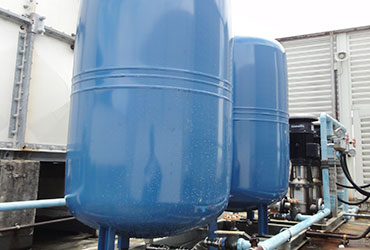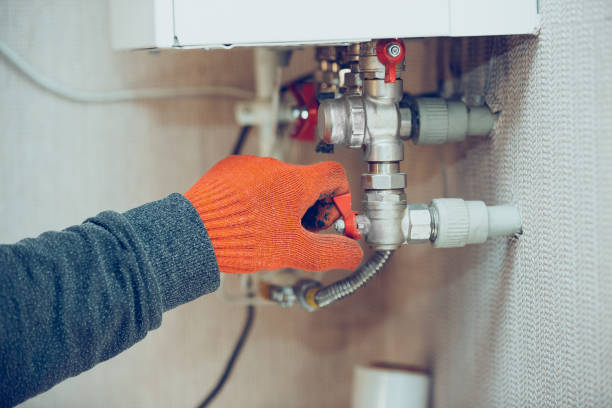Recommended Approaches for Fixing Low Water Pressure in Your Home
Recommended Approaches for Fixing Low Water Pressure in Your Home
Blog Article
Are you currently in search of know-how around 9 Reasons for Low Water Pressure in Your House?

Low water pressure in your home can be an aggravating problem, impacting every little thing from bathing to washing meals. If you're experiencing weak water flow, there are numerous feasible reasons and remedies to explore. In this overview, we'll discuss common reasons for low tide pressure and practical actions to deal with the problem efficiently.
Intro to Low Tide Stress
Low tide pressure occurs when the circulation of water from your taps, showers, and other fixtures is weaker than usual. This can make day-to-day jobs much more tough and much less efficient. Understanding the causes of low tide pressure is crucial to finding the ideal option.
Common Sources Of Low Tide Stress
Faulty Pressure Regulatory Authorities
Pressure regulatory authorities are accountable for maintaining regular water stress in your house. If they malfunction, it can cause low tide pressure or irregular flow throughout your home.
Municipal Water System Issues
Sometimes, the trouble exists outside your home. Community water concerns, such as main line leaks or upkeep job, can temporarily lower water pressure in your area.
Pipe Obstructions
In time, pipelines can end up being clogged with natural resource, sediment, or particles, restricting the circulation of water. This is a typical issue in older homes with galvanized steel pipelines.
Deterioration
Deterioration within pipelines can bring about leakages and minimized water pressure. Corrosion buildup can restrict water flow, particularly in maturing plumbing systems.
How to Identify Low Water Pressure
Evaluating Pipes
Evaluate noticeable pipelines for indications of leaks, rust, or obstructions. Take notice of any type of uncommon noises, such as banging or rattling pipelines, which could suggest issues within the plumbing system.
Consulting with a Plumber
If you're incapable to pinpoint the cause of low water pressure, consider working with a specialist plumber to perform a comprehensive inspection. They can determine underlying issues and recommend ideal remedies.
Checking Faucets and Components
Start by testing the water pressure at different faucets and fixtures throughout your home. If the concern is isolated to certain areas, it may suggest localized problems.
DIY Solutions to Fix Low Water Pressure
Flushing Hot Water Heater
Debris buildup in the water heater can limit circulation and reduce efficiency. Purging the container regularly helps eliminate sediment and maintain ideal efficiency.
Inspecting Pressure Regulatory Authority
Make sure that the stress regulatory authority is operating properly. Changing or changing the regulator can aid recover proper water stress throughout your home.
Cleaning Up Aerators and Showerheads
Mineral deposits can collect in aerators and showerheads, minimizing water circulation. Get rid of and clean up these components routinely to improve water stress.
Clearing Up Clogs in Water Lines
For small clogs, attempt making use of a plumbing snake or chemical drain cleaner to clear obstructions in pipes. Be cautious when making use of chemicals and adhere to safety and security standards.
When to Call an Expert Plumber
If do it yourself initiatives stop working to fix the concern or if you think substantial plumbing troubles, it's finest to seek aid from a qualified plumber. They have the knowledge and devices to deal with intricate issues safely and successfully.
Preventive Measures to Keep Water Pressure
Setting Up a Stress Booster
Think about setting up a pressure booster pump to improve water stress in areas with constantly low circulation. This can be especially advantageous for multi-story homes or residential properties with high-demand fixtures.
Tracking Water Use
Be mindful of water use routines and avoid overtaxing the plumbing system. Basic changes, such as shocking showers and laundry lots, can assist preserve sufficient water stress.
Normal Maintenance
Schedule routine maintenance for your plumbing system to avoid concerns such as corrosion, leaks, and clogs. Resolving small issues early can help avoid even more significant fixings later on.
Final thought
Taking care of low water stress can be discouraging, but determining the underlying causes and implementing ideal remedies can restore optimal flow throughout your home. Whether it's cleansing aerators, checking pipelines, or seeking advice from a plumber, taking positive steps can make certain a constant supply of water for your daily needs.
FOUR WAYS TO FIX LOW WATER PRESSURE NOW
Turning on a shower or faucet only to find the water comes out in a sad, slow drizzle is never a good feeling. How exactly are you supposed to wash a pan or take a quick shower when it takes 10 minutes just to rinse off a little soap? The good news is that when your water pressure is bad, there's always a cause: typically one that can be easily fixed. Here are some of the most common causes of low pressure and what you can do to fix the issue:
DEBRIS AND MINERAL DEPOSIT BUILDUPS
If you notice low water pressure from just one or two of the fixtures in your house, the problem likely has to do with debris buildup. Water is full of minerals and other debris, all of which can accumulate in your pipes and on your fixtures. This can cause a blockage that affects how much water flows through. To fix this, try filling a small plastic bag with white vinegar, and use a rubber band to hang it around your showerhead or faucet. Let the head of the fixture soak for a few hours, and the vinegar should loosen the deposits.
WATER LEAKS
Leaks are another common cause of low water pressure. If water is flowing out of your plumbing through a hole or crack before it can reach your fixture, the pressure coming out of the faucet or showerhead will be lower. A plumbing professional is your best bet for finding and repairing a leak in your water supply pipes.
Leaks are another common cause of low water pressure. If water is flowing out of your plumbing through a hole or crack before it can reach your fixture, the pressure coming out of the faucet or showerhead will be lower. A plumbing professional is your best bet for finding and repairing a leak in your water supply pipes.
A VALVE ISSUE
If you have low water pressure throughout your home, check your main shut-off valve to make sure it's completely open. You may also want to see if there's a pressure-reducing valve installed. If there is, have a plumber help you adjust the settings to get the pressure you're looking for.
OTHERS USING WATER
Believe it or not, your low water pressure could be caused by your neighbors. If you notice low pressure at certain times of day, it may be because you and the people living next to you have similar schedules - when everyone is showering at the same time, the pressure will be lower in every home. Low pressure throughout the neighborhood may also be caused by an issue with your municipal water supply. If that's the case, call the supplier to see if they're working on the issue.
https://www.rotorooter.com/blog/water-leaking/low-water-pressure-fixes/

We had been made aware of that write-up about through a buddy on another web page. If you appreciated our blog posting plz do not forget to share it. Bless you for being here. Kindly stop by our site back soon.
Call Today Report this page